Your Roundabout "How To" Guide
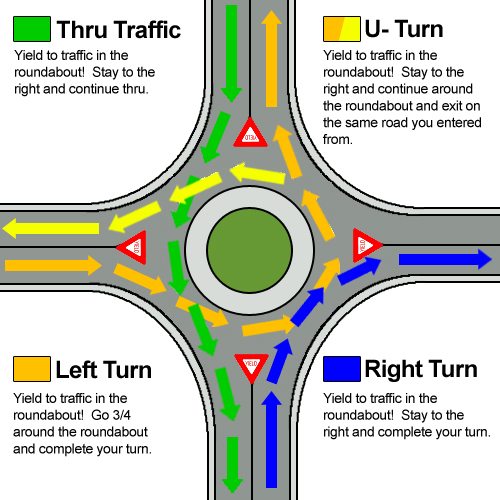
Roundabout rules reviewed My Cowichan Valley Now
Roundabouts — you know, those circular intersections with the round median in the middle. The very word strikes fear into the hearts of driver-education instructors, elderly motorists and basically all Americans. In all fairness, though, they are a little counterintuitive. As drivers approach a roundabout, they first yield to any traffic.

A roundabout with four arms describing the physical geometric design... Download Scientific
Part 1 March 7, 2012 Well designed roundabouts should minimize accidents, delay and costs for everyone using the intersection. This session covers the design process that leads to a well designed roundabout as well as challenging conditions where roundabouts may fail. Presentation Outline - Part 1 Identifying Candidate Intersections
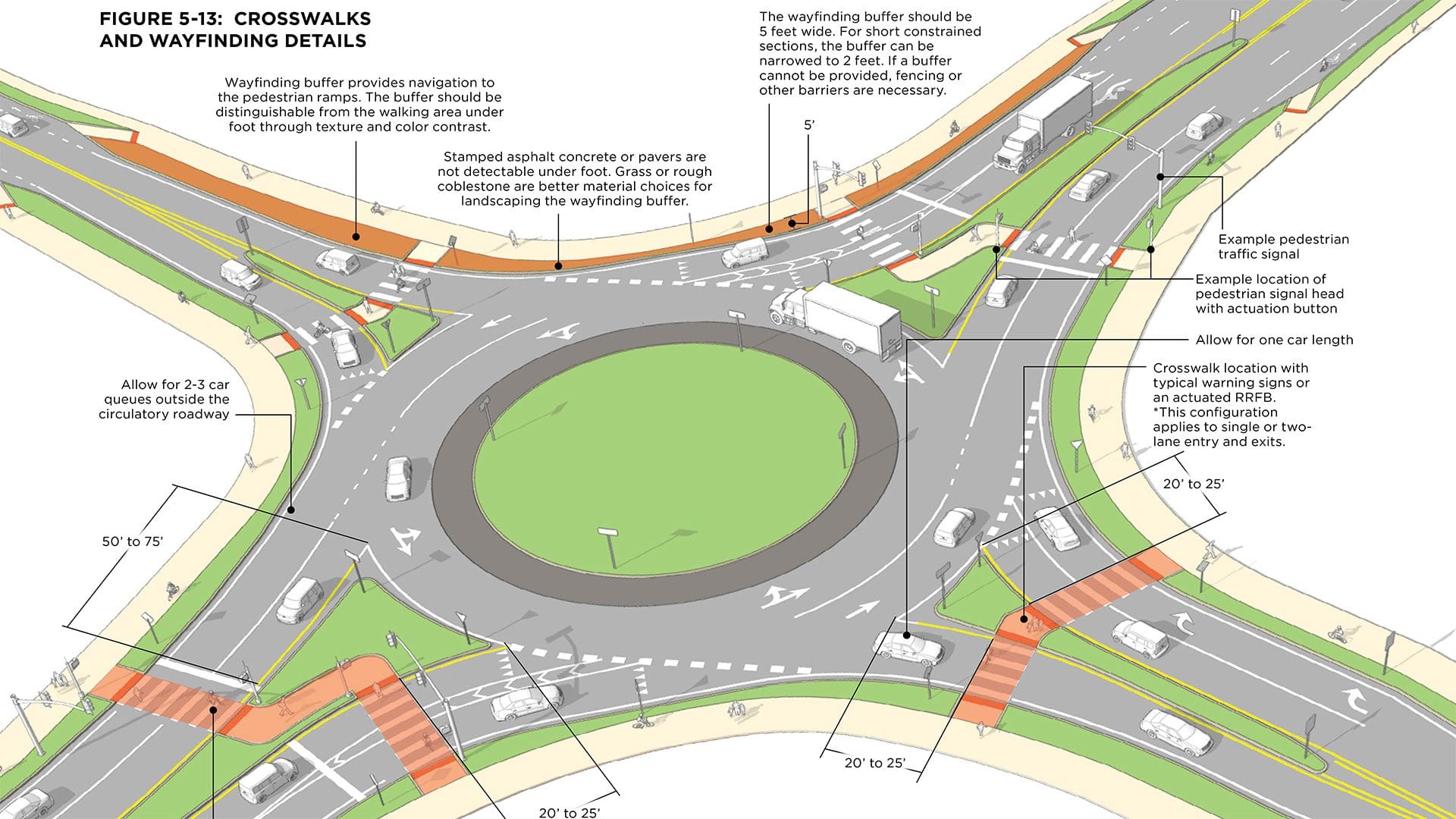
A Guide That's Changing the Way We See Roundabouts Kittelson & Associates, Inc.
1 Slow down as you approach the roundabout. At this point, you should see a "Roundabout Ahead" sign followed by a "Yield" sign. The recommended speed is normally 15 - 20 mph (24 - 32 kph). [2] 2 Look to your left before entering the roundabout and yield to any oncoming traffic. Traffic already in the roundabout has the right-of-way.

Pin on aDriving News
7.1.1 Turbo Block. The spiral alignment of a turbo roundabout is generated from the "turbo block," a series of circular arcs with centers located at various points along a reference line known as a "translation axis.". The turbo block consists of arcs that represent the inner and outer edges of each lane.
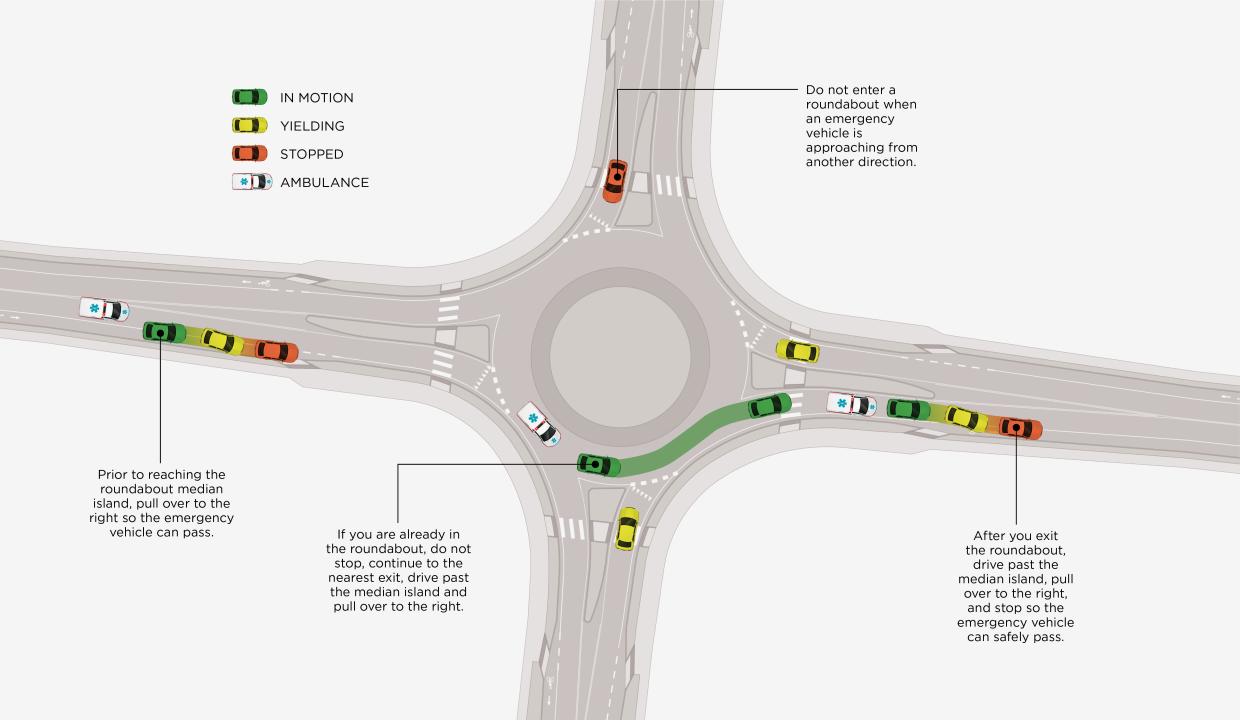
What are roundabouts? Mass.gov
According to INDOT, roundabouts provide 75% fewer conflict points leading to 76% fewer vehicle crashes with injuries and 30-40% fewer pedestrian accidents. Since there are fewer chances for cars to cross each other's paths and more stopping points for crosswalks, roundabouts greatly reduce potential impacts and impact severity as shown in.
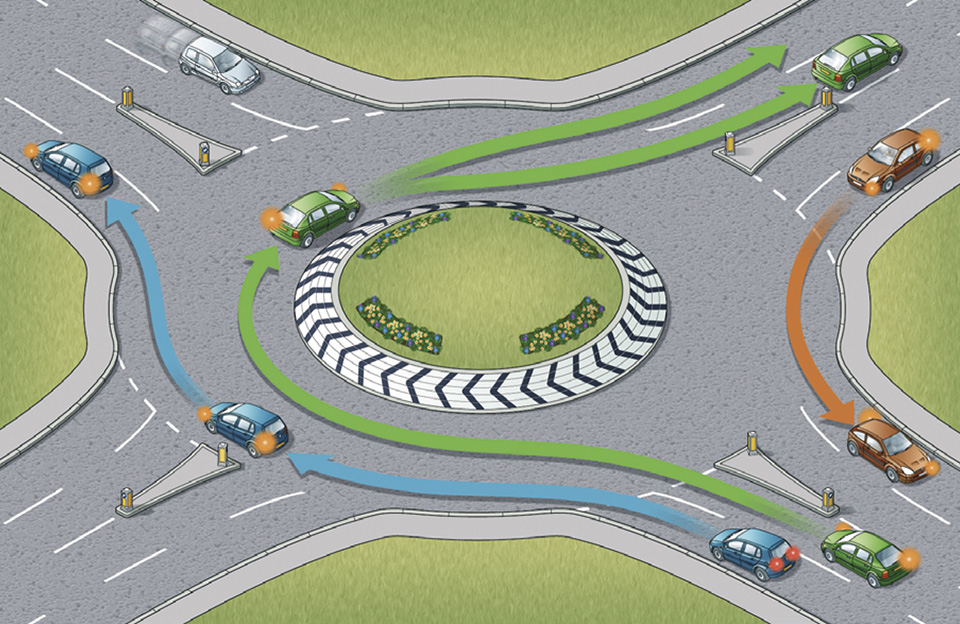
Roundabouts Learner Driver UK
When walking through a roundabout, never cross the circular roadway. Instead, cross the legs about one vehicle-length from the circle, preferably at a crosswalk. Even though you have the right-of-way, make sure drivers see you before you step out into the road. If you need to, use the splitter islands for refuge [source: NDOT, "Driving" ].

Massachusetts Is Converting Its Rotaries Into Roundabouts
A traffic circle is a larger style of intersection. A traffic circle is a circular road that joins other roads at right angles. It gives the right of way to those entering the circle (rather than existing traffic), often necessitating traffic lights to control entry and exit.

Let’s Talk Roundabouts Single and DualLane MySouthlakeNews
A description on how drive in a two lane roundabout. For additional details visit the Region of Peel website at http://www.peelregion.ca/roundabouts . Video.

This insane giant traffic roundabout in England will make your head spin
A roundabout is a circular-shaped intersection where drivers move counterclockwise around a center point. You won't find any traffic signals or stop signs in most modern versions. Instead, every driver yields at the entry of the roundabout to other traffic.
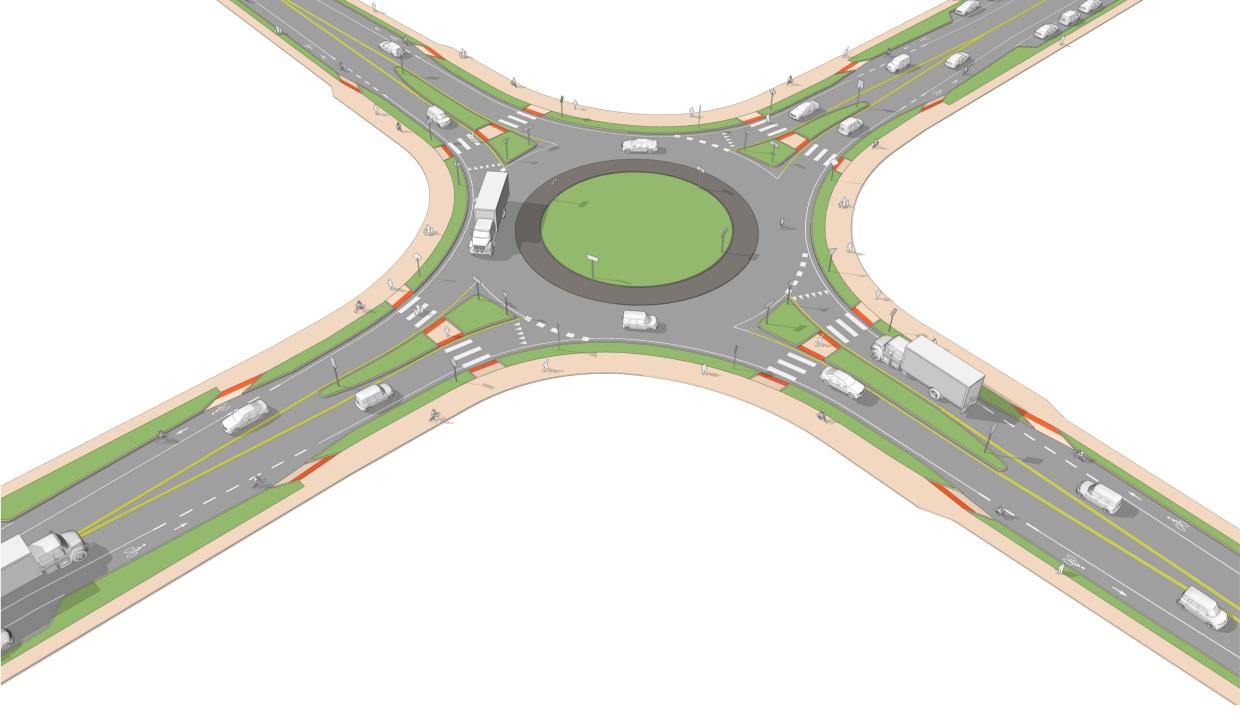
What are roundabouts? Mass.gov
What is a roundabout? A modern roundabout is a circular intersection where drivers travel counterclockwise around a center island. There are not traffic signals or stop signs in a modern roundabout.
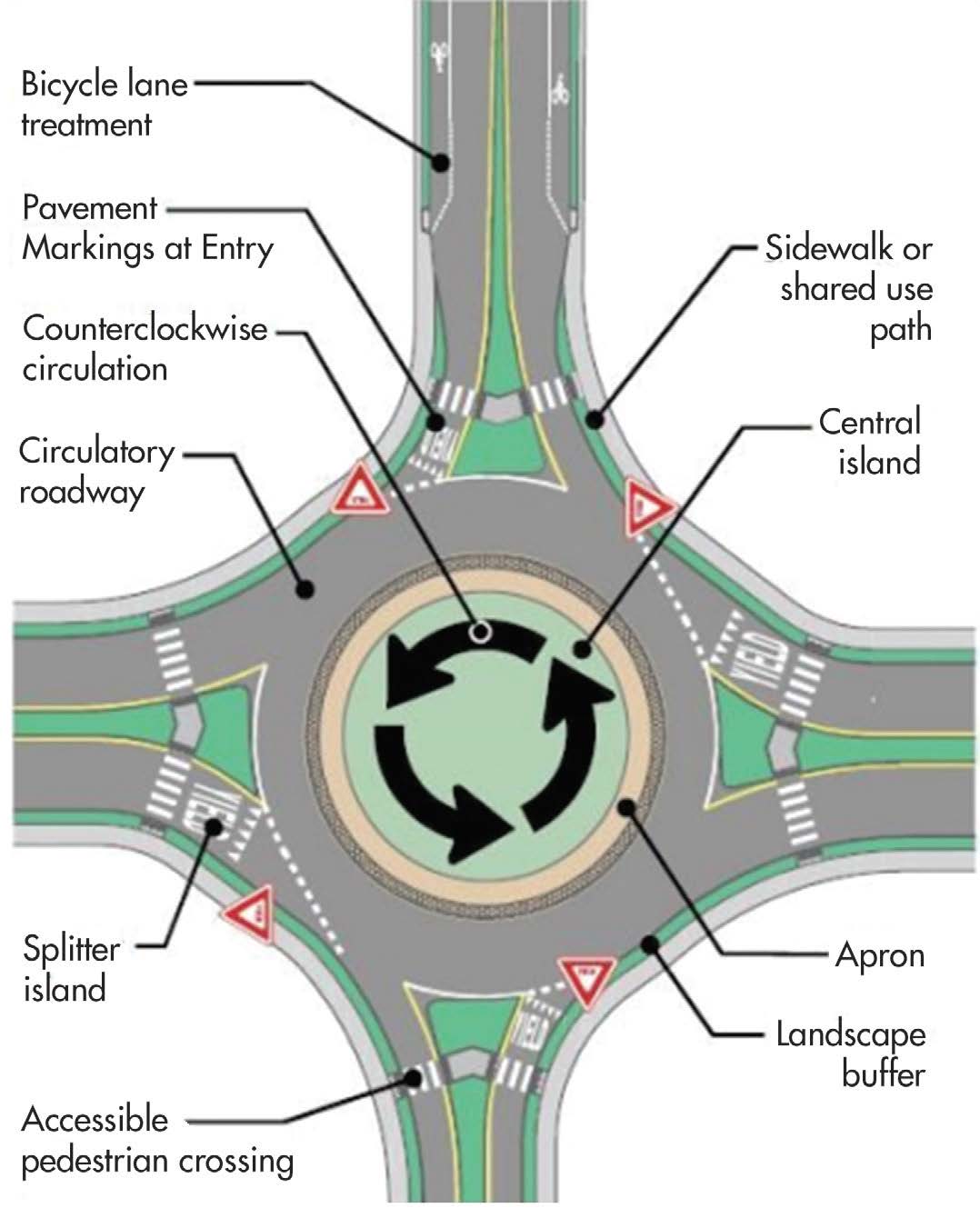
U.S. embracing the ‘ins and outs’ of roundabouts The Municipal
A roundabout is a circular intersection where vehicles move counterclockwise around a central island. There are no traffic lights to regulate the flow of cars. Instead, circulating vehicles have the right-of-way, and those entering must yield to them. Roundabout Signs Roundabout Signs Multi-lane vs. Single-lane Roundabouts
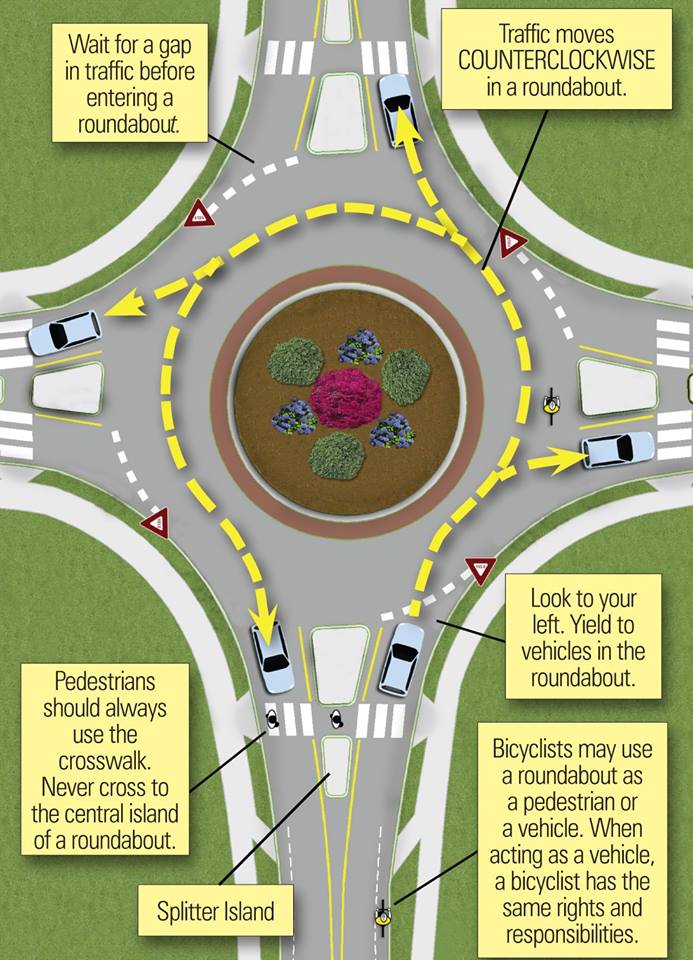
Roundabouts
Driving Modern Roundabouts teaches beginning drivers, or those new to driving roundabouts, how to identify legal and safe movements through a roundabout conf.

Your Roundabout "How To" Guide
The modern roundabout is a circular raised intersection with no traffic lights. It is designed to reduce crashes and improve traffic flow. By understanding h.

Negotiating Roundabouts Safely Freedom School of Motoring
multilane (two circular lanes) roundabouts at at-grade intersections. For the design of other roundabouts, reference should be made to . NCHRP 672. 1. Roundabouts have demonstrated substantial safety and operational performance over other forms of intersection control. FHWA identified roundabouts as one of nine safety countermeasures recognized
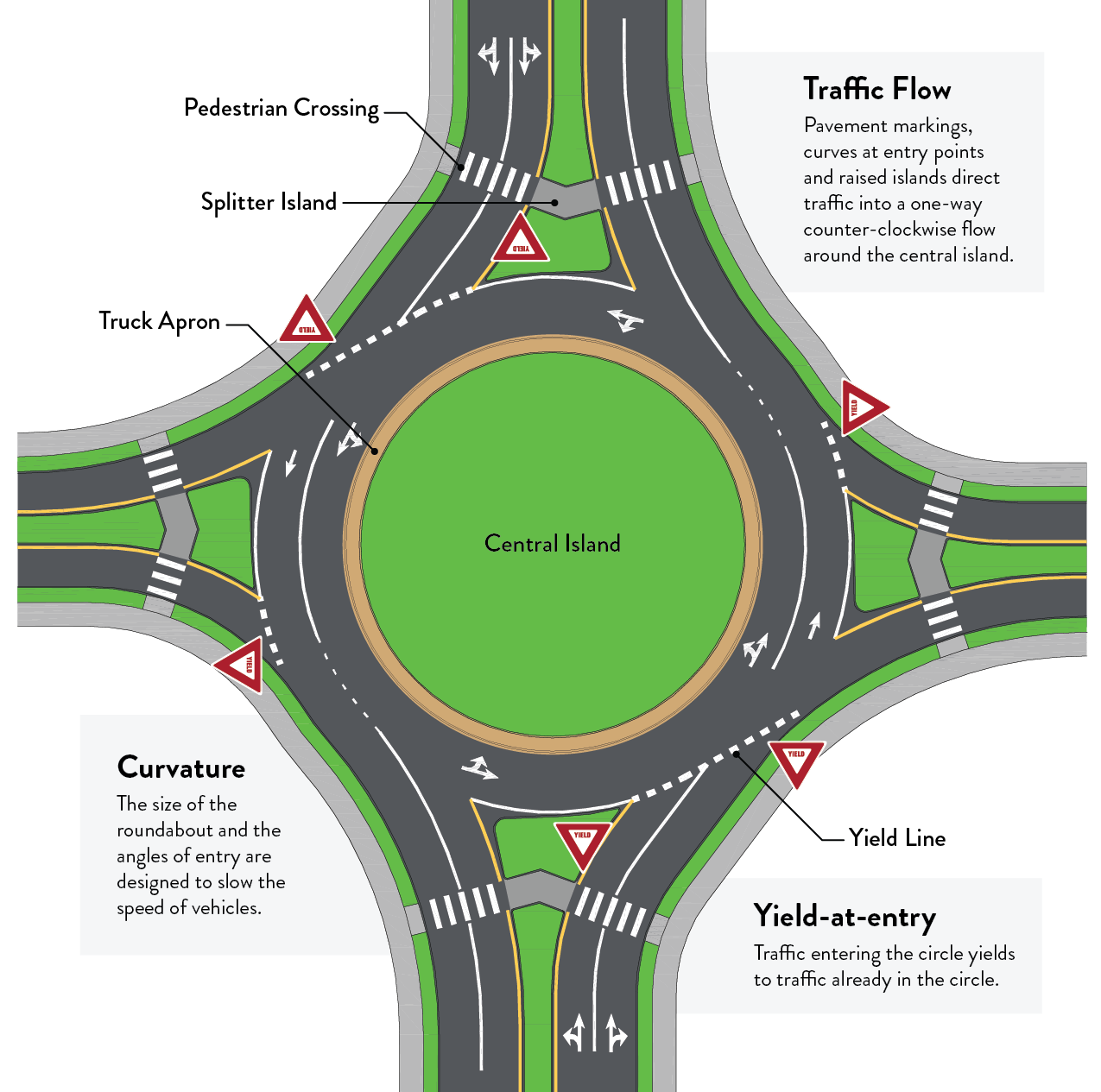
US 71 Bemidji
Turning right. If you're taking a right turn at a roundabout, (typically the 3rd exit), you'll need to travel around it from the right-hand lane. Continue in the right-hand lane until you pass the 2nd exit. Check your main mirror, then your left door mirror and signal left. You'll need to move into the left lane before exiting - so.
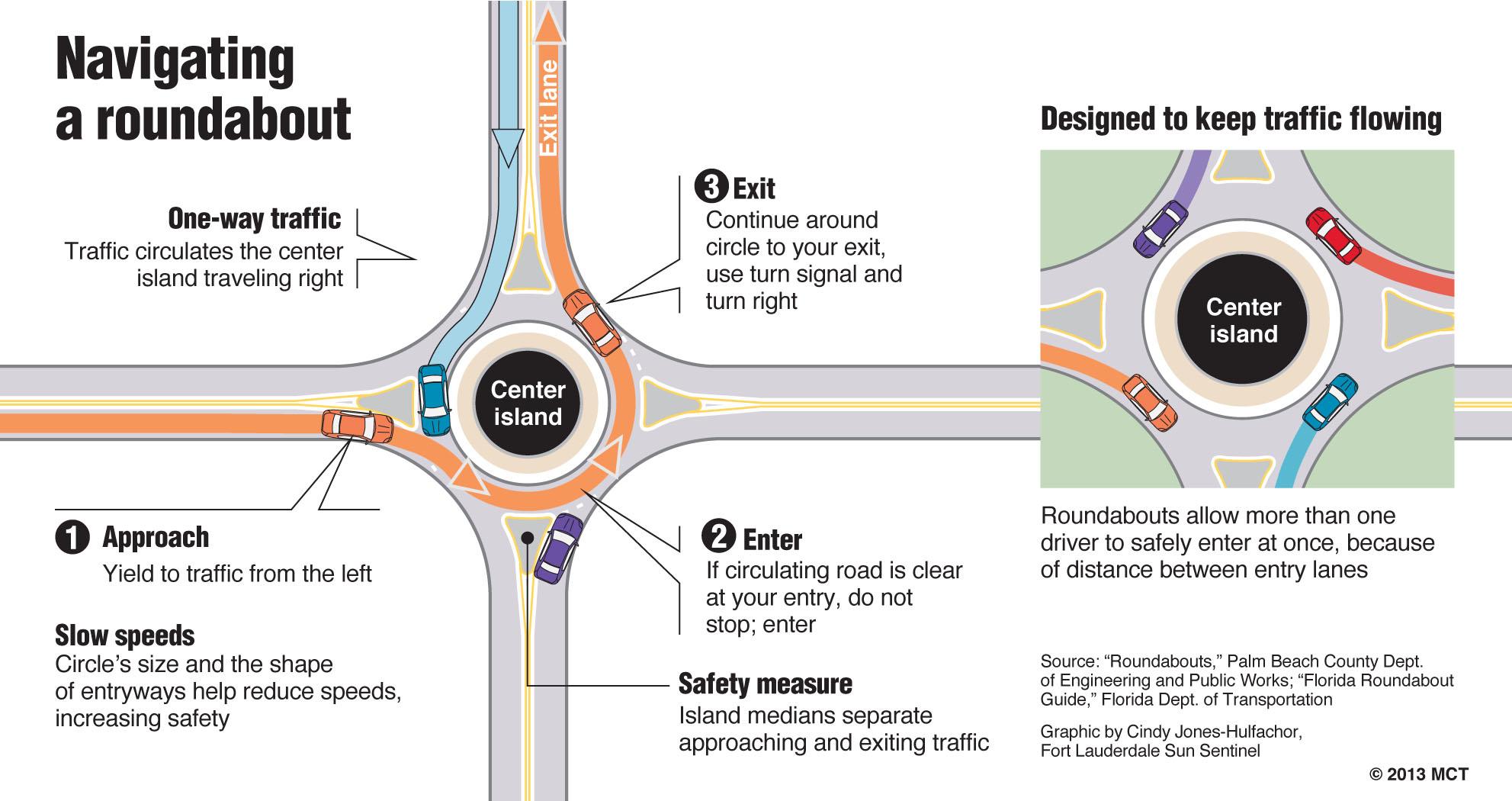
Roundabouts The crisis of our times Northern Iowan
A roundabout is a form of a circular intersection in which traffic travels counterclockwise around a central island and entering traffic yields to the circulating traffic. Roundabouts have been demonstrated to significantly reduce the number of severe crashes at intersections, improve Level of Service (LOS), and increase capacity.